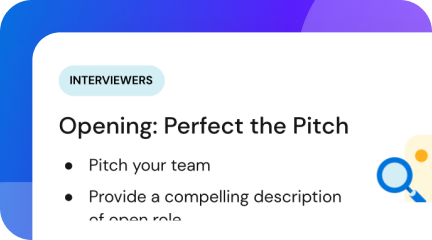In 2019, Alyssa Rhoda, Director of Talent Acquisition at Zefr, and her team wrapped up a record-breaking year with more hires than ever before. Shortly after, the pandemic brought hiring to a screeching halt. In March 2020, the US declared a national emergency as we’re all keenly aware.
While most companies, including Alyssa’s, were laying people off, she and her team were lucky to have a forward-thinking TA leader who had their best interests at heart. He took action to make sure their small, but mighty, TA team was not on any reduction in force (RIF) list.
Recently, I sat down with Alyssa to hear her truly inspiring story detailing how her former employer was able to retain an entire TA team during a company-wide layoff. It felt especially timely with so many of our colleagues and friends recently impacted. It turns out with the right leadership and culture in place, anything is possible!
Read on for Alyssa’s story.
Looking back at March 2020…
Alyssa and her team had a record-breaking recruitment year in 2019 at MasterControl. Recruiting was at its very best approaching the end of Q1 2020. But then the pandemic hit, sending everyone home to work remotely for the first time.
Fast forward one month. Alyssa’s “fearless leader” and Talent Acquisition Manager knew the team was at risk, and he needed to act fast. Alyssa recalled his explicit intent to figure out how he was going to save the team.
After meeting with each member of the TA team to better understand their strengths and interests, he met with department heads to pitch the idea of having the team lean in and help other departments.
What happened next? Thankfully with executive leadership supportive of the plan, three TA team members went to help sales, one to marketing, and one held down the recruitment fort for any one-off requests.
How structured was the transition?
The team didn’t know exactly how long they’d be on a hiring freeze but assumed a few months would be spent away from their traditional recruitment duties. Luckily, recruiters usually know everybody, so it felt natural to temporarily jump to other teams.
As far as structure went, everyone knew what they’d be working on and helping with. However, there were no formal goals or metrics tied to these new duties. According to Alyssa, everyone understood that they were “jumping past” a formal new hire training and diving in to help in the best way possible. Alyssa and team were operating under the mantra of “Do whatever you can to help out.”
The best part? Alyssa and her teammates were able to give immediate relief to the new teams they were supporting in a few areas that were really slowing the teams down. For example, they helped the sales team with writing RFPs, researching key decision makers on LinkedIn, and cold calling.
Sales and marketing appreciated the help so much that they were sad when (most) everyone returned to recruiting. (One TA team member with a passion for marketing ended up staying on the team!)
What motivates leaders to fight for their teams in this way?
Alyssa spent a lot of time thinking about this question. “I think when a company’s going to do a RIF, a lot of leaders don’t feel like they have the influence or the ability to speak up and fight for their teams.”
She went on to say, “The culture at MasterControl was a big component. It empowered our leader and the team to fight for us.”
The company collectively valued the recruitment team and understood what it would take to rebuild such a valuable asset for the company. “I think when they had a recruiting team that they really trusted and worked well with, they weren’t willing to give it up.”
This type of flexibility or solution isn’t an option in every situation as we all know. However, it sure is great to know that there are leaders and company cultures out there who make this type of story possible.
Alyssa’s key takeaways
An overarching theme for Alyssa and team was the way this experience made all of them feel. She says, “Number one, it made us feel really valued and cared for, not just as employees, but as people.”
She also describes feeling “re-energized” upon returning to her recruitment duties. “To come back to what I love and what I’m passionate about was so refreshing.”
Alyssa talked about what initially made her choose MasterControl. “Through the interview process, I could feel that the relationship between recruiting, the executives, and hiring managers, like it was a true partnership.”
That turned out to be a very prophetic experience for Alyssa and the rest of her rockstar TA team. “I think we all grew together so much in that year. It was so cool to be able to save and protect our team. That was pretty special.”
If your team has found themselves in a slightly different position, check out these three recruiting strategies to consider when hiring is slow and resources have been reduced.









